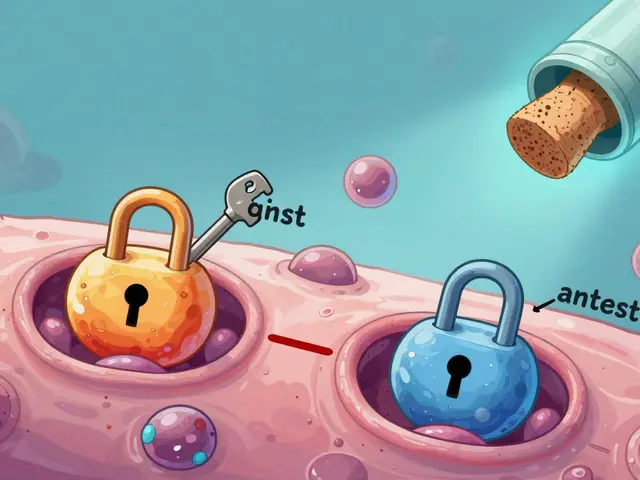Muscle Aches — Causes, Fast Relief, and When to See a Doctor
Muscle aches (myalgia) are common and usually harmless. They can come from too much exercise, poor sleep, stress, viral infections, or leaning a body part awkwardly. Most muscle pain improves in a few days with simple care. Here are clear, practical steps to feel better faster and know when to get medical help.
Fast at-home fixes
Start with rest for the first day if the pain is sharp or tied to a new injury. Avoid pushing through severe pain, but keep gentle movement to prevent stiffness. Try alternating cold and heat: ice for the first 48 hours if the muscle is swollen or bruised, then warming packs to relax tight muscles.
Take an over-the-counter painkiller if needed. Ibuprofen and naproxen reduce pain and swelling. Acetaminophen helps with pain but not inflammation. Use medications exactly as the label says and check with a pharmacist if you’re on blood thinners or other prescriptions.
Simple stretches can speed recovery. Hold each stretch for 20–30 seconds without bouncing. Focus on the tight area and surrounding muscles. A short walk or gentle yoga helps circulation without stressing the sore spot.
Hydration and sleep matter. Dehydrated muscles cramp more and recover slower. Aim for regular, quality sleep; the body repairs muscle tissue while you rest. Light massage or foam rolling can ease knots but stop if it increases sharp pain.
Topical options like menthol or capsaicin gels give targeted relief without systemic side effects. Use as directed and avoid broken skin. If your work or sport caused the ache, modify activity and build back slowly to avoid repeating the issue.
When muscle pain needs a doctor
See a doctor right away if you have severe weakness, sudden swelling, high fever, trouble breathing, or chest pain with the muscle ache. These can signal serious problems like infection, blood clots, or heart issues. Also seek care if the pain lasts more than two weeks despite home care.
If you’re taking statins or other drugs linked to muscle damage and you notice unusual weakness or dark urine, contact your prescriber. Some infections and autoimmune conditions cause persistent myalgia and need tests or specific treatment.
For recurring or unexplained muscle aches, your doctor may check blood tests for inflammation, thyroid function, or signs of muscle injury. Physical therapy is often recommended for long-standing problems and can be more effective than pain meds alone.
Want quick action now? Rest, ice or heat, gentle movement, proper sleep, hydration, and a short course of OTC pain relief usually do the trick. If anything feels out of the ordinary or gets worse, don’t wait—get medical advice.

Finding Relief from Muscle Aches through Mindfulness Meditation
Mindfulness meditation isn't just for mental wellness. It can play a significant role in easing muscle aches and boosting physical recovery. Through understanding how meditation influences pain perception and employing practical meditation tips, one can find both mental and physical relief.
read more




